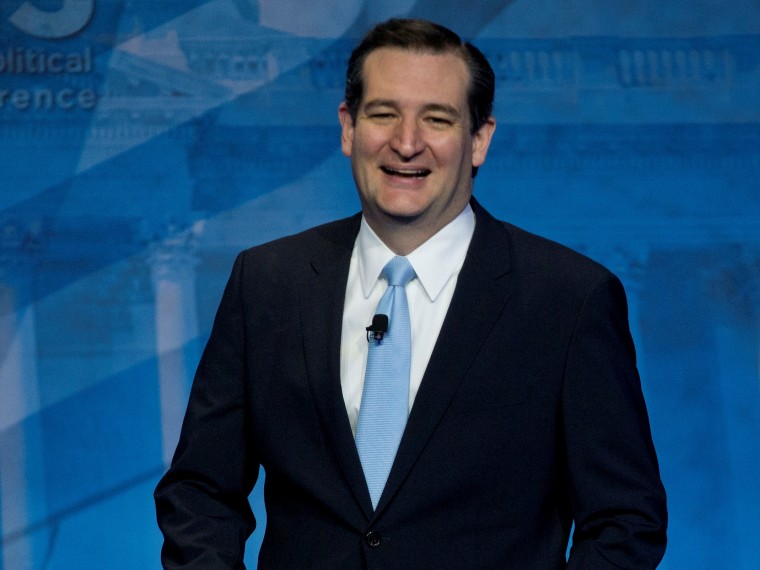Texas Republican Sen. Ted Cruz hit the South Carolina Silver Elephant dinner on Friday night, where he recounted a story he's told before: how his father arrived from Cuba with $100 sewn in his underwear, and was the first step to his dad's new life in America.
The story illustrates not just Cruz's own immigrant background but the difficulty the freshman senator may face if he decides to run for president. Cruz was born in Canada, not the United States, leading some to question whether the U.S. Constitution, which restricts eligibility to "natural born" citizens, bars him from running.
The phrase has been left open for interpretation, although many legal scholars say it ultimately shouldn't be an obstacle for Cruz.
"I think it's pretty clear that "natural born" is defined in such a way as it includes everybody that has citizenship and who got it [in a way] other than from naturalization," professor Peter Spiro, a citizenship law expert from Temple University said on Monday's The Daily Rundown.
Cruz's mother was a U.S. citizen from Delaware, and the Republican senator has claimed her citizenship was passed on to him at birth. The Immigration and Nationality Act of 1952 backs him:
(Citizenship is awarded at birth to) a person born outside the geographical limits of the United States and its outlying possessions of parents one of whom is an alien, and the other a citizen of the United States who, prior to the birth of such person, was physically present in the United States for a period or periods totaling not less than five years, at least two of which were after attaining the age of fourteen.
While Cruz's father didn't become a U.S. citizen until 2005, his mother was born and raised in Wilmington, Del.
Although Congress has weighed in on this citizenship test, the Supreme Court has never definitively answered the question about what the founding fathers intended.
Spiro said the Supreme Court isn't likely to do so.
"The court won't touch this with a 10-foot pole...it's too politically sensitive," Spiro said. "There will always be just a little bit of a door opening for political opponents. But it's really just a little bit."
